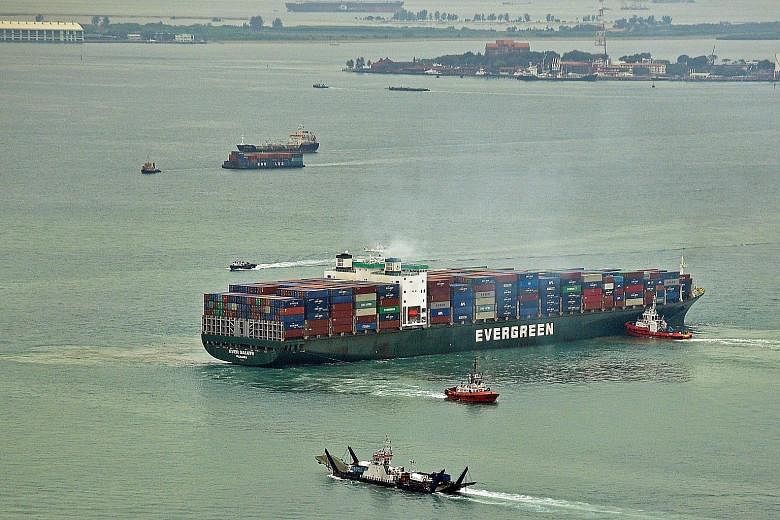A major Pacific Rim trade deal looked dead in the water a year ago.
In one of his first acts in office, United States President Donald Trump nixed what he denounced as the "job-killing" Trans-Pacific Partnership (TPP). Japanese Prime Minister Shinzo Abe had, at the time, reacted by saying it would be "meaningless" to pursue such a pact without the world's largest economy.
Tokyo's calculations, however, would soon change. By April last year, it was at the forefront of a major pushback against the surge in protectionism as it vowed to build an open and free economic order in the Asia-Pacific.
The agreement in Tokyo yesterday by the remaining 11 countries in the original TPP to move forward on the revised deal - now renamed the Comprehensive and Progressive Agreement for TPP (CPTPP) - caps a trade pact over 10 years in the making, with its roots in an agreement between Singapore, Brunei, Chile and New Zealand.
Singapore's Ministry of Trade and Industry said in a statement that yesterday's outcome "reaffirms the CPTPP countries' collective commitment towards greater trade liberalisation and regional integration".
Waseda University economist Shujiro Urata has forecast a boost of 0.9 per cent to the Japanese economy once the CPTPP is enforced. He said it is "not a small number" for the world's third-largest economy, which is growing about 1 per cent a year on average.
"Increasing business opportunities for Japanese firms in foreign markets and reducing investment barriers abroad will open doors for a domestic market that is suffering from a declining population and ageing demographic," he said.
But the Economist Intelligence Unit's Japan analyst, Ms Agathe L'Homme, told The Straits Times that she expected the effects of the CPTPP would not be felt until the 2020s, "given the lengthy ratification and implementation process".
Singapore, too, will stand to reap benefits from the deal after it goes into force, even though it already has free trade pacts with all the CPTPP member countries save for Canada and Mexico.
The other countries in the TPP-11 group are Australia, Brunei, Chile, Malaysia, New Zealand, Peru and Vietnam.
DBS senior economist Irvin Seah, a former negotiator for free trade agreements, told The Straits Times that the CPTPP was significant as it involved more commitments than the bilateral deals, including in intangible areas such as environment and labour issues.
"Stronger growth in the Asia-Pacific region will also definitely benefit trade-dependent countries like Singapore," he said.
OCBC economist Selena Ling added that the CPTPP agreement was a "testament that trade agreements are not passe", and might add momentum to talks for other multilateral trade deals such as the Regional Comprehensive Economic Partnership.
Japan and Singapore said the door would be kept open for other territories to join the pact, with South Korea, Indonesia, Thailand, the Philippines and Taiwan having expressed interest.
It is also hoped that the US would eventually be persuaded to return.

